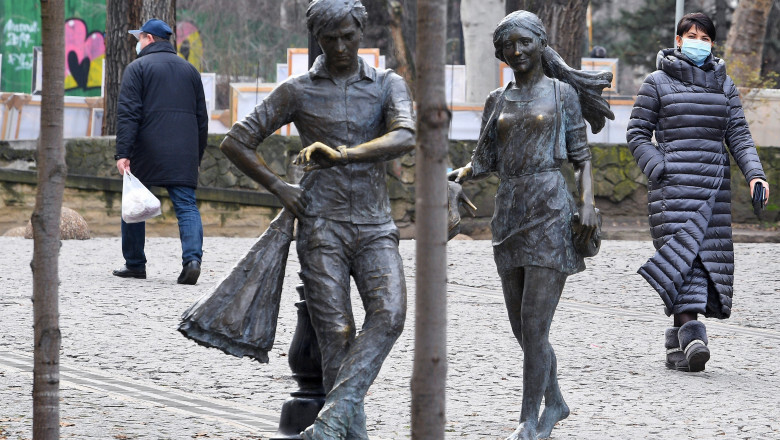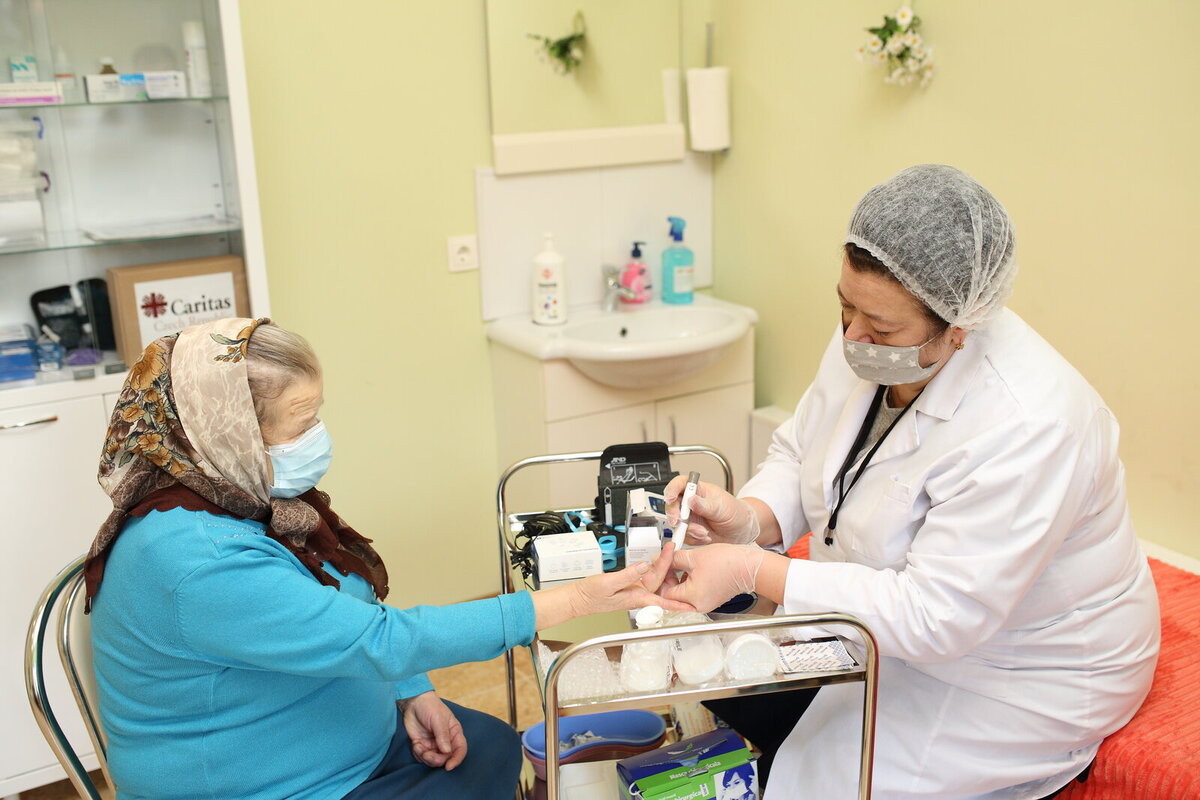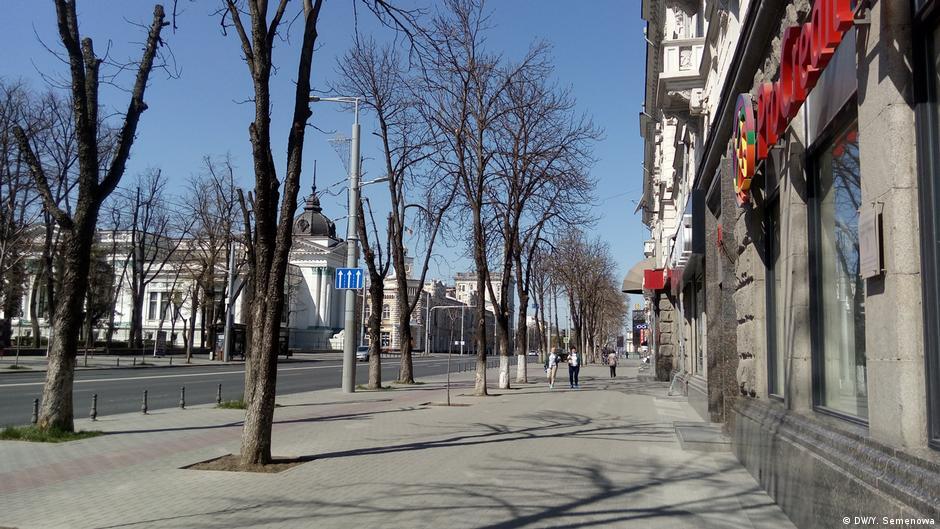Right now many European countries are lifting most of the measures introduced to fight against the spread of covid-19 and Moldova is no exception. Public places are slowly opening up and the vaccination is under way. What did the last year mean for the country and how did the pandemic affect especially the elderly, whom Caritas Czech Republic in Moldova helps? The Country Director of our office in Moldova will tell us more.
In Moldova, a country of approximately 3 million people, about 370,000 people have contracted coronavirus since the beginning of the pandemic, and more than 6,000 succumbed to the disease.  Over the past year, the poor European country has relied on help from its development partners and countries such as Romania or Russia. Also the first dose of vaccines was provided to Moldova by Romania at the end of February, followed by a donation of vaccines through the COVAX mechanism, which provides vaccines to developing countries.
Over the past year, the poor European country has relied on help from its development partners and countries such as Romania or Russia. Also the first dose of vaccines was provided to Moldova by Romania at the end of February, followed by a donation of vaccines through the COVAX mechanism, which provides vaccines to developing countries.
Caritas Czech Republic has also joined the fight against the pandemic in Moldova. Vasile Vasiliev, the Country Director of our office in Moldova, explains in an interview how the pandemic affected the work of our office in the country and what obstacles it brought.
More than a year has passed since the beginning of the pandemic. What has changed the most in your work in Moldova?
I began working for Caritas Czech Republic when the pandemic was already present in our daily lives and did not expect to attend face-to-face meetings or large offline events. I had to do all my introductory meetings online and did not get the chance to meet many of our partners in person for a long period of time. Of course, our country office had to adjust to the new realities, but besides the lack of personal interaction not much has changed.
In previous interviews, the Country Directors of our Country Offices confessed that the pandemic has brought a number of obstacles they had to deal with. What obstacles did the Moldovan country office face?
It was most certainly the fact that we could not meet our partners and donors in person. I just recently attended a networking event for the first time in more than one year. It made me think once again that I missed this part of my work and I had a personal satisfaction in interacting with many of our partners under one roof. Creating and maintaining partnerships is one the most important aspects of my job and even though we got used to the online world, I really hope that we will come back to pre-pandemic state of things.
Last year, when the pandemic hit Europe, majority of the countries reacted with a complete closure of services and borders. Was the situation similar in Moldova?
Yes, Moldova went into a full lock-down in the spring of 2020 and since then the measures were gradually relaxed or adjusted to the possibilities of the system of handling the situation. Currently, measures like wearing masks or restrictions on public events are still in place. Schools, shops, restaurants and even theatres are open with a set of requirements that ensure everyone’s safety. And if the current low casuistry level will carry on, we could expect less and less restrictions.
Unfortunately, it’s still complicated to travel to Moldova, since most pre-pandemic air routes are no available anymore. But with a negative COVID-19 test and some patience it is possible to get here and avoid quarantine.
The services are now open, does it mean that Caritas’ team is back in the office again?
We are still working from home and check if the office is still there from time to time. But we do expect that will change in the near future. Offline events are slowly making a comeback and the lack of circulation restrictions opens up the doors for travelling across the country, meeting with partners and monitoring our project activities.
Certainly, some parts of our work which don’t need personal interaction will stay in the online world. Due to COVID-19 our team was pushed to enhance their abilities in using online instruments and platform, which made our work more efficient. This is one thing that I would like us to continue.
Caritas Czech Republic provides a long-term care mainly for elderly people in Moldova. How did the pandemic affect those people?
I would say that they were one of the most affected groups in the country. In the beginning it was not even clear how basic social and health services should be provided to those in need, but solutions were found really fast and currently they are taken care of in a suitable and safe way.
Has Caritas Czech Republic joined the fight against the pandemic in Moldova?
We had to react fast in order to cover the needs of the people we support while meeting the requirements of our partners. Based on a swift assessment we provided trainings for social and medical assistants on how to work under pandemic conditions, we delivered personal protection equipment to medical and social services centres and covered the basic needs of the people these centres help.
How does life in Moldova look like now?
Day by day we are coming back to the things we were doing before the pandemic hit the country. People are optimistic and eagerly expecting the possibility of travelling, going on vacations or just attending big cultural events. Streets are not empty anymore and people tend to be less precautious about avoiding large crowds. But the pandemic is not over yet and this is why it’s so important to stay vigilant and abide by the rules.
How does the vaccination against Covid-19 look like in Moldova?
Vaccination in Moldova started in March 2021 and by the end of April most of our medical staff was already vaccinated. As of recently, vaccines are available for the general population and appointments are done online in order to ensure an organized and smooth process. Up to now around 10% of the whole population was vaccinated and Moldova largely depends on vaccine donations from development partners and donors. Also, new Covid-19 cases dropped drastically in the past few weeks and this shows that vaccine rollout, among other measures, has a positive impact.
What surprised you the most about the pandemic in Moldova?
I was surprised how the state authorities reacted, deployed resources and fought the large waves of covid-19 cases. Each time the medical system was close to a shutdown, the system put in place adequate measures to fight the pandemic and manage the burden on the shoulders of the health professionals. These people are the heroes of our time and we should do everything possible to ease their job.








